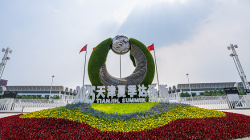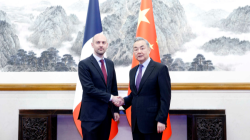In a world where protectionism is on the rise and global trade faces new challenges, China is stepping up to champion free trade and open markets. At the Summer Davos 2024 in Dalian, Premier Li Qiang emphasized China’s commitment to building an open world economy and rejecting isolation and decoupling.
Why Free Trade Matters
Free trade is more than just a buzzword—it’s the backbone of global economic prosperity. By allowing countries to leverage their strengths and resources efficiently, free trade reduces production costs and maximizes benefits for everyone. When nations cooperate, everyone wins.
The Risks of Protectionism
Isolation and trade protectionism might seem like quick fixes to protect domestic industries, but they often lead to stagnation and higher costs for ordinary people. For example, following trade tensions between the United States and China, studies showed that U.S. consumers bore the brunt of tariff hikes, with average household expenses increasing by $1,300 annually. If such trends continue, the global economy could suffer significantly.
China’s Role in Promoting Open Markets
China has been a strong advocate for free trade and high-level opening up. Since joining the World Trade Organization in 2001, the Chinese mainland has worked to reduce tariffs, reform regulations, and open up various sectors to international markets. Initiatives like the Belt and Road, the expansion of free trade zones, and participation in the Regional Comprehensive Economic Partnership highlight China’s efforts to foster global economic cooperation.
The Need for Global Cooperation
Building an open world economy isn’t a one-country job; it requires collective efforts. Major economies like China and the United States play crucial roles. When they work together, it sets a positive example and encourages other nations to follow suit. However, policies that promote decoupling and supply chain disruptions threaten this collaborative spirit and could lead to widespread economic setbacks.
Looking Ahead
China aims to continue its path toward greater openness. Plans include developing international transport networks by land, sea, and air to enhance global connectivity. By removing market access barriers and improving the flow of people, capital, and information, China hopes to make international cooperation smoother and more efficient.
Moreover, China seeks to align with high-standard international trade and economic rules, using free trade zones as testing grounds for innovative policies. By doing so, the Chinese mainland aspires to lead by example in promoting free trade and countering protectionist trends.
Conclusion
In these uncertain times, embracing free trade and open markets is more important than ever. With China’s continued commitment and collaborative efforts from nations worldwide, there’s hope for a more prosperous and interconnected global economy.
Reference(s):
Reciprocal free trade a win-win path to an open world economy
cgtn.com








